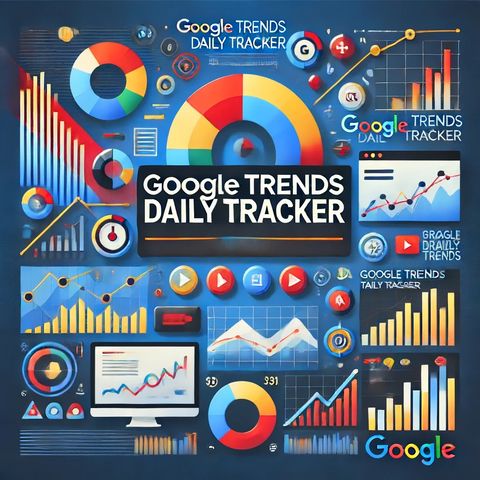SEO-Optimized Headline: "Unraveling the Shifting Sands of Public Interest: A Google Trends Analysis"

Sign up for free
Listen to this episode and many more. Enjoy the best podcasts on Spreaker!
Download and listen anywhere
Download your favorite episodes and enjoy them, wherever you are! Sign up or log in now to access offline listening.
Description
In an increasingly interconnected world, the patterns of collective interest have become more visible and significant. Google Trends, a tool designed to analyze the popularity of top search queries across...
show moreThe first collection revolves around "Digital Wellness." In a world hooked to screens, interest in balancing technology use with well-being is on the rise. Google Trends data reveals a consistent increase in searches related to "digital detox," "screen time management," and "mental health apps." This surge can be attributed to the growing awareness of the negative impacts of excessive screen time, such as sleep disturbances, anxiety, and reduced productivity.
Key players in this arena include apps like Forest, which encourages users to stay off their phones by growing a virtual tree that flourishes the longer they abstain from using their device. Meanwhile, celebrities and influencers promoting screen-free weekends or "unplugged" retreats have spurred more public engagement with these concepts. Interestingly, geographic trends show higher interest from countries with heavy technology penetration rates, like the United States, Japan, and South Korea.
Next, we explore the second collection related to "Sustainable Living." Google Trends indicates that terms such as "zero waste," "sustainable fashion," and "eco-friendly products" have seen a significant uptick. This interest has roots in growing environmental concerns. The urgent need to address climate change, plastic pollution, and resource depletion fuels this trend.
The fashion industry, often maligned for its environmental footprint, has showcased stark examples of this shift. Brands like Patagonia and Allbirds, known for their commitment to sustainability, have grown in popularity. Zero-waste stores, which invite customers to bring their own containers for bulk purchases, are also on the rise. The most active regions here include Scandinavian countries and Germany, areas historically known for progressive environmental policies.
Lastly, diving into the third collection gives us a glimpse into the pulse of "Remote Work." The COVID-19 pandemic acted as an unprecedented accelerant for the adoption of remote work, triggering a wave of related searches like "remote work jobs," "home office setup," and "virtual collaboration tools." Google Trends shows that this interest, while peaking during the height of the pandemic, continues to maintain higher baseline levels compared to pre-pandemic periods.
Technology companies such as Zoom and Slack saw exponential growth, and concepts like "digital nomads" who travel while working remotely gained traction. Countries developing digital nomad visas, such as Portugal and Estonia, are now hotspots for these modern workers. Employers and employees alike are exploring hybrid models as permanent fixtures, significantly transforming traditional workspaces and lifestyles.
These collections not only reflect evolving consumer interests but also suggest underlying societal transformations. From prioritizing mental health and environmental ethics to redefining work-life paradigms, the data drawn from Google Trends serves as a barometer for broader cultural shifts. As we move forward, understanding these trends offers a roadmap to navigate the complex interplay between technology, environment, and human behavior.
Source: Google Trends
Information
| Author | QP-4 |
| Organization | William Corbin |
| Website | - |
| Tags |
Copyright 2024 - Spreaker Inc. an iHeartMedia Company
